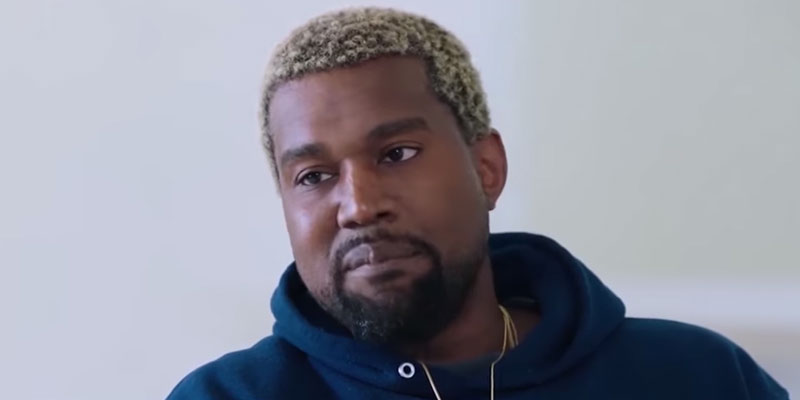In regards to the disturbance caused by Kanye West’s comments on slavery, West provided clarification that I believe is much less inflammatory than the original statement.
That statement seemed to mean that he believes slavery was voluntary—an ignorant, insulting comment without the clarification that followed.
I found that the media at times did not include the totality of his first statement, and many publicized reactions did not include the clarification. Here is what he originally said:
“When you hear about slavery for 400 years, for 400 years? That sounds like a choice. Like, you were there for 400 years and it’s all of y’all? It’s like we’re mentally in prison. I like the word ‘prison’ because slavery goes too direct to the idea of blacks.”
In the same interview, West went on to say, “Prison is something that unites us as one race, blacks and whites being one race. We’re the human race.”
Afterward, Kanye West tweeted the following to clarify his comments in the interview:
“We need to have open discussions and ideas on unsettled pain, to make myself clear. Of course, I know that slaves did not get shackled and put on a boat by free will. My point is for us to have stayed in that position even though the numbers were on our side means that we were mentally enslaved. They cut our tongues so we couldn’t communicate to each other. I will not allow my tongue to be cut.”
“We are programmed to always talk and fight race issues,” he added. “We need to update our conversation. the reason why I brought up the 400 years point is because we can’t be mentally imprisoned for another 400 years. We need free thought now. Even the statement was an example of free thought it was just an idea. once again I am being attacked for presenting new ideas.”
Personally, I accept his clarification as a valid expression of opinion- whether I agree or not. I do agree that black people should not feel restricted to the politically acceptable view of anything, nor should they refrain from expressing a contrary view.
Thinking for yourself and expressing your opinion on vital issues, with or against the grain of any culture, are colorless rights. All people deserve respect for their sincerely held opinions, regardless of skin color.
In fact, in my opinion, bringing unspoken views to the surface (being more transparent) is the best way to progress in regard to race and race relations in our society.
This is not easy. I realize that the shackles of slavery were not simply shed with the Emancipation Proclamation. So—black or white—we can’t simply open up any more than we can “just get over it.”
The tangible effects of those shackles lingered through many years of restricted voting rights as well as whites-only bathrooms, water fountains, and schools. Legally supported slavery and its physical shackles may have disappeared well over 150 years ago, but those other legally-supported restrictive shackles were maintained for another hundred! It was not that long ago.
Victims still bear the pain of those post-slavery shackles while others bear that pain in their love for parent and grandparent victims who still suffer. Then, there are the day-to-day, very real burdens of social and economic racism borne by some more than others.
To be honest, as long as sin is alive in our society, I do not expect this or even more radical forms of racism perpetrated by sinful people to disappear. However, we can and must progress in race relations. This is America, and now is the time to begin the transparency real progress will require! It may be another generation who receives the full benefit of real relationships—good race relations, after all, being dependent on good, open relationships.
The purpose statement for my book, Better Than Them, The Unmaking of an Alabama Racist, is consistent with this in terms of promoting a new, better approach to improving race relations, and I quote it here for your consideration: “I want Better Than Them to contribute to a fresh, constructive dialogue on race relations in our nation—one rooted more in transparency than in political correctness.”
From all I have gathered in my experience as well as research for, feedback on, and many diverse discussions about the contents of my book, we need to break out of our own shackles when it comes to discussing race and race relations. Not much does more damage to relationships than the elephants in rooms that we see but never talk about. Going back to a turning point in this regard, was good or harm done by not having interracial discussions about what happened in Ferguson, Missouri? What about Confederate statues? Ask yourself the good/harm question if you denied those elephants in the room, and only spoke transparently when others in the room obviously shared your views.
I say that this is indeed the time to start communicating our own individual views about the elephant—political correctness and tenacious fears notwithstanding! Leave the professional activists and politicians out of it. Relationship building is a grass-roots thing.
Yes, it is still not easy to talk about race and race relations – to give our own views, to be transparent. Beginnings rarely are – just like childbirth. Still, until we break the silence, many of us—black and white—are indeed voluntarily submitting to a form of slavery. In that regard, at least, Kanye is right. We are all in the same prison.
S. McEachin “Mac” Otts is the author of Better Than Them, The Unmaking of an Alabama Racist and lives in Mobile.
Don’t miss out! Subscribe today to have Alabama’s leading headlines delivered to your inbox.
